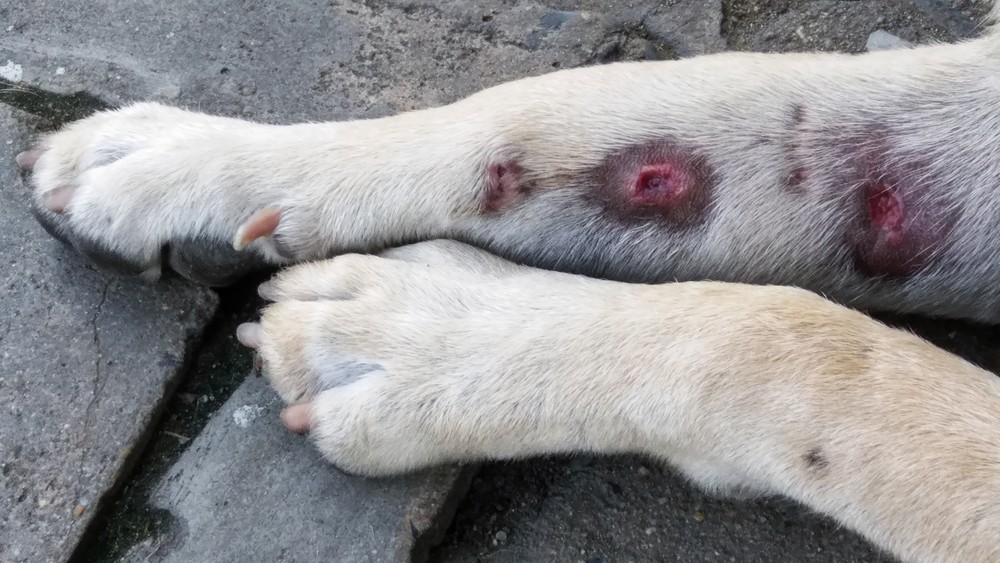Oakland Veterinary Referral Services Blog
Dog-Friendly Trails and Parks in Southeast Michigan
We are lucky to live in a place with so much natural beauty, and it’s the perfect time of year to get outside with your pets to enjoy all that this area has to offer. If you love going for long walks or hikes with your pup, here are some dog-friendly trails and parks in southeast Michigan for you to explore.
Continue…Growing Up With Pets Helps Kids Learn Life Skills
Anyone who has ever owned a pet knows that there is no end to the things animals can teach us. Not everyone realizes what a positive influence a family pet can have on a child, though. Growing up with pets helps kids learn life skills like empathy and responsibility in a hands-on way that can’t be taught as well in any other manner. Since pet ownership is a lifelong responsibility, children can quickly learn what it means to care for others.

Outdoor Activities for Dogs Beyond the Daily Walk
Heart disease is one of the top causes of death in dogs, especially later in life but not only then. The field of veterinary cardiology focuses on a pet’s cardiovascular and respiratory systems, encompassing both preventive care and the diagnosis and treatment of existing cardiovascular and respiratory conditions. Veterinary cardiologists are board-certified doctors who have received extra training in the field to ensure they can provide expert care. Here are some of the main reasons your pet might need to see a veterinary cardiologist:

Why Your Pet Might Need to See a Veterinary Cardiologist
Heart disease is one of the top causes of death in dogs, especially later in life but not only then. The field of veterinary cardiology focuses on a pet’s cardiovascular and respiratory systems, encompassing both preventive care and the diagnosis and treatment of existing cardiovascular and respiratory conditions. Veterinary cardiologists are board-certified doctors who have received extra training in the field to ensure they can provide expert care. Here are some of the main reasons your pet might need to see a veterinary cardiologist:

What to Expect From Your Pet's Dermatology Appointment
Skin issues in pets can bother the whole family. It’s hard to be happy when our pets are suffering, especially when we don’t know what’s causing it. Several factors can contribute to skin issues in animals. Luckily, veterinary dermatologists provide relief for animals suffering from skin conditions. This guide will help you determine what to expect from your pet’s dermatology appointment.

Prepare Your Pets for the 4th of July
The 4th of July is definitely one of the loudest holidays in the United States. It is also one of the most fundamental events of summer. While humans may love gathering together, firing up the grill, and watching the fireworks, this holiday can cause significant stress in pets. Use these tips to prepare your pets for the 4th of July so you can enjoy the holiday without worrying about how your pets are faring.

Creating Necessary Vertical Spaces for Cats
Cats are athletic, agile creatures. They need space and freedom to run and jump. Not everyone realizes that these space requirements extend beyond the horizontal. Vertical spaces are not only fun for cats; they’re necessary. Keep reading to discover why vertical spaces for cats are essential and how to easily provide them in your home.

Prenatal Care for Pets
It’s exciting to have a pregnant pet who is about to bring some cute babies into the world. Pregnant pets have unique health needs to keep them and their unborn children safe during pregnancy. Prenatal care for pets is important during pregnancy. This special care can keep everyone safe and healthy throughout this beautiful time in an animal's life.

Pet-Proofing Your Home for a New Pet
Bringing home a new dog or a cat is an exciting time in an animal lover’s life. Before you get too excited about the idea of your new furry roommate, it is essential to prepare for their arrival. Pet-proofing your home is a crucial step toward successful pet ownership. Use these tips from your friends at Oakland Veterinary Referral Services to help you prepare for your new pet:

Designing a Stylish, Pet-Friendly Home
As pet owners, we have different considerations for what we keep in our homes than our animal-free counterparts do. Designing a pet-friendly home makes our spaces safer for our furry roommates and more comfortable for cohabitation. Just because a space is pet-friendly, though, does not mean it needs to have a boring and unoriginal style. Here are some tips on designing a stylish, pet-friendly home:

How to Care for Your Senior Cat
Our pets need different levels of care during various stages of life. When you agree to take a pet into your home, this means you are prepared to offer this care as they age. Senior cats require a different level of care than kittens or adult cats, but what does that mean, exactly? The team at Oakland Veterinary Referral Services is here to help you figure out how to care for your senior cat.

What to Expect From a Visit to the Veterinary Emergency Room
While no one expects a veterinary emergency, it helps to understand how to deal with an emergent situation and find the help your pet needs. A veterinary ER offers specialized emergency care that can save your pet’s life. Do you know what to expect from a visit to the veterinary emergency room? This guide will help prepare you in case you ever need to bring your pet to one:

Cats versus Dogs? We Went Straight to the Source
It’s time to settle the debate once and for all: who wins when it comes to cats versus dogs? We decided to go straight to the source and ask each species which is the best and why. So, without further ado, here we go:

Pet-Safe Easter Celebrations
What We Do When a Dog Swallows a Foreign Object
Dogs are naturally curious creatures; sometimes, they explore the world around them with their mouths. If your dog swallows a foreign object, you should get them veterinary care as soon as possible. The Oakland Veterinary Referral Services team is here to walk you through how we handle situations when a dog swallows something.

How We Treat Bite Wounds in Pets
At Oakland Veterinary Referral Services, we see our fair share of injuries. Our expert emergency team knows how to offer animals the best care, including treating bite wounds in pets:

Life with a Reactive Dog
Each dog has a unique personality. A large part of being a successful pet owner is giving the animal the space to be themselves and doing what you can to help when needed. Life with a reactive dog can be challenging at times, but taking the proper precautions and giving your dog the guidance they need can be a very rewarding experience for both of you.

Pet Emergencies: What Can and Can’t Wait
In a pet emergency, how can you tell when every second counts vs. when you have some time for a regular veterinary appointment? This guide will help you figure out which pet emergencies can and cannot wait.
Accidents and emergencies will happen to even the most prepared pet owners. Although we can’t plan for everything, we can prepare ourselves by knowing when our pets need emergency care right away.

Hot Spots on Dogs: How to Treat and Prevent Them
Hot spots are a common skin issue affecting dogs, which can leave your pup with unpleasant side effects. The Oakland Veterinary Referral Services (OVRS) team is here to help. This guide teaches you how to treat and prevent hot spots on dogs.




